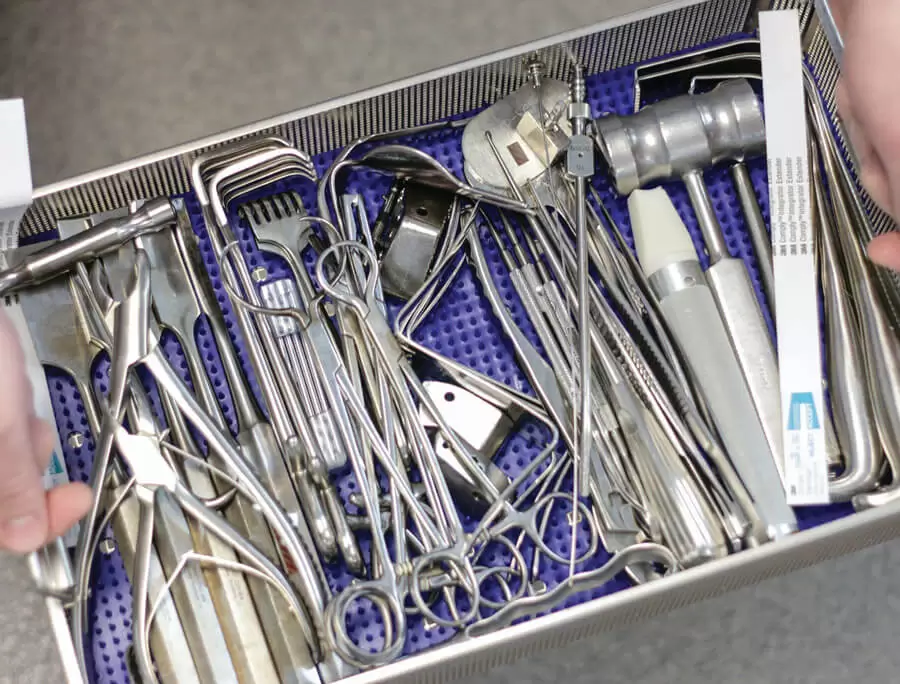Article Outline
- Introduction
- The Importance of Surgical Instrument Care
- Basic Care Tips for Surgical Instruments
- Cleaning and Sterilization
- Handling and Storage
- Regular Maintenance
- Quality Assurance and Inspection
- Identifying Wear and Tear
- Replacing Damaged Instruments
- The Impact of Poor Instrument Care
- Best Practices for Longevity
- Material Matters
- Choosing the Right Cleaning Agents
- Proper Sterilization Techniques
- Training and Education
- Conclusion
- FAQs
 Surgical Instruments Care Tips: Ensuring Longevity and Quality
Surgical Instruments Care Tips: Ensuring Longevity and Quality
In the fast-paced world of healthcare, the focus is often on patient care and treatment outcomes. However, the proper care of surgical instruments is equally critical. Neglecting instrument maintenance can result in increased costs, reduced efficiency, and even compromised patient safety. In this article, we’ll explore essential care tips to ensure the longevity and quality of surgical instruments.
The Importance of Surgical Instrument Care
Surgical instruments are precision tools that must be in optimal condition for every procedure. Proper care not only extends their lifespan but also contributes to successful surgeries and better patient outcomes. Neglecting care can lead to rust, wear and tear, and compromised sterility.
Basic Care Tips for Surgical Instruments
Cleaning and Sterilization
Before and after each use, surgical instruments should be thoroughly cleaned and sterilized. Use enzymatic detergents, ultrasonic cleaners, and autoclaves for effective cleaning and sterilization. Properly cleaned instruments minimize the risk of infection.
Handling and Storage
Handle instruments with care to prevent damage. Store them in a dry and clean environment. Avoid overcrowding in storage containers to prevent scratches and dents.
Regular Maintenance
Perform regular inspections for signs of wear and tear. If you notice any issues, address them promptly. Maintenance should include lubrication and testing of moving parts.
Quality Assurance and Inspection
Identifying Wear and Tear
Regular inspections should include identifying signs of wear such as pitting, corrosion, or dullness. Damaged instruments can affect surgical outcomes.
Replacing Damaged Instruments
If an instrument is damaged beyond repair, it should be replaced. This ensures that surgeons always have access to reliable tools.
The Impact of Poor Instrument Care
Inadequate care can lead to complications during surgery, prolonging the operation and increasing patient risk. Additionally, frequent replacements add to the hospital’s operational costs.
Best Practices for Longevity
Material Matters
The material composition of surgical instruments matters. Instruments made of high-quality stainless steel are more durable and corrosion-resistant.
Choosing the Right Cleaning Agents
Select cleaning agents and disinfectants recommended by instrument manufacturers. Incompatible agents can damage instruments.
Proper Sterilization Techniques
Follow the sterilization guidelines provided by manufacturers to maintain the instruments’ integrity.
Training and Education
Healthcare professionals must receive proper training on instrument care. This includes handling, cleaning, and maintenance. Ongoing education ensures that the latest best practices are followed.
Conclusion
Caring for surgical instruments is a critical aspect of healthcare that cannot be overlooked. Proper care ensures the longevity and quality of instruments, contributing to successful surgeries and improved patient outcomes. Neglecting instrument care can lead to increased costs and compromised patient safety.
FAQs
1. How often should surgical instruments be sterilized?
- Surgical instruments should be sterilized before and after each use.
2. Can damaged instruments be repaired?
- Some minor damages can be repaired, but if an instrument is significantly damaged, it should be replaced.
3. What is the role of stainless steel in instrument longevity?
- Stainless steel is corrosion-resistant and durable, making it a preferred material for surgical instruments.
**4. What happens if instruments are not properly cleaned and sterilized?
- Improper cleaning and sterilization can lead to infections and complications during surgery.
5. How can healthcare professionals stay updated on best practices for instrument care?
- Continuous training and education are essential for staying updated on the latest best practices in instrument care.

